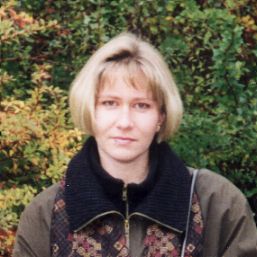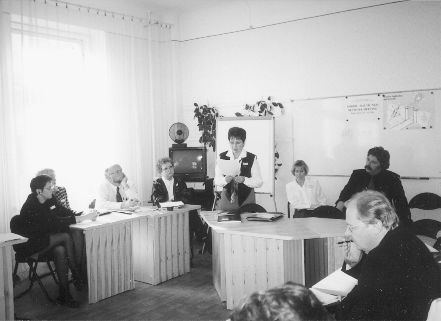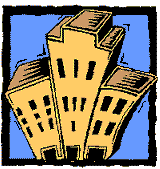 By
Antra Carlsen
By
Antra Carlsen
project leader, NFA International Centre
The Nordic - Baltic NGO network is a project within the Nordic Council of Ministers Working Programme for the Areas Adjacent to the Nordic region, initiated by FOVU in 1997 and organised by NFA. The aim of the network is twofold:
- to establish close contacts between the Nordic and the Baltic adult education umbrella organisations, to plan the development of the learning society around the Baltic Sea;
- as well as to foster regional and local co-operation among adult education institutions and to secure the best use of resources of the existing and future projects.
There have been three meetings held so far with the participants being the leaders of the national Nordic and Baltic adult education umbrella organisations and project leaders from folk high schools and study associations in the Nordic and the Baltic countries.
The 1st (January 30 - 31, 1997) NGO Network meeting took place at NFA and brought together the national Nordic and Baltic umbrella organisations for adult education and the Nordic block organisations, totally 13 participants (9 Nordic and 4 Baltic). The meeting consisted of two parts, the first was devoted to discussing the development of the Nordic - Baltic co-operation in adult education since 1992, the second part comprised the discussion on the aims, procedures and means of the Nordic-Baltic NGO network. As NFA has played an important role in the field previously, it was suggested that annual meetings should be held at the Academy, where Nordic and Baltic NGO leaders and/or members could evaluate the work done and discuss the future needs and strategy in co-operation in the field of adult education. Common on-going and new Nordic - Baltic projects should ensure the formation of local NGO networks.
The group of participants was enlarged for the 2nd (October 17 - 19, 1997) meeting, held at NFA. 15 Baltic and 13 Nordic participants met including the leaders of organisations and the practical project leaders. 5 projects were presented and could share the experience with others. Information and communication channels were discussed and the NFA database initiative presented. It was evaluated positively and the suggestion made to make it an open Internet database with links to the existing home pages of the adult education organisations in the Nordic and the Baltic countries. Baltic Dialogue was evaluated as an important information and exchange channel. A common wish was expressed to increase bilateral exchange on equal bases, giving both the Nordic and the Baltic side new knowledge and experience. In order to provide most complete insight into the development of adult education in the Baltic countries it was decided to hold the coming meeting in one of the Baltic countries.
The 3rd network meeting took place in Riga, Latvia, October 15 - 18, 1998. The overall theme was democracy and adult learning, especially concentrating on the present processes in the Nordic and Baltic societies and the role adult education is playing / should play in them. The first day was common for all the participants for learning the latest developments in each others country, and the second day was spent in groups: the umbrella organisations discussing the political level of co-operation and the project leaders exchanging experience and generating new ideas. The host for the network meeting with 36 participants (20 Nordic, 15 Baltic, 1 UNESCO observer) was the Latvian Adult Education Association.

A presentation on the current situation of the society in Latvia, its problems and development was made by professor Ilze Ostrovska. The following problems for the development of NGOs in Latvia were enlisted:
- lack of financial independence,
- lack of channels of communication with state institutions,
- small or no access to mass media,
- lack of uniting ideology (no alternative to nationalism).
Currently the following three groups were said to comprise the society of Latvia:
Group 1. - can meet the challenge of the market system and political independence. They are a part of old nomenclature elite, skilled workers, the group that had access to the resource distribution before the regime change, a small percentage of the farmers, a part of youth, those involved in semi-legal business previously.
Group 2. - can partially, not on regular bases meet the challenge of the market system, consisting of intellectuals-professionals, lower ranks of the nomenclatura hierarchy, pensioners, small entrepreneurs (lacking knowledge in business management), women, a part of youth, the majority of farmers.
Group 3. - cannot respond to the challenge of the market system, consisting of marginalised groups of the previous regime and the new one (unemployed, not willing or able to be retrained, unskilled workers, those with low basic education, without the knowledge in languages, without computer skills), land-less peasants.
The current situation within adult and popular education in the countries concerned was provided by the Baltic and Nordic umbrella organisation leaders. Numerous important changes have taken place in the Baltic countries (e.g., paid education leave (LT), changes in tax regulation (EE), establishment of folk high school association (LV), etc.).
The Nordic presentations
concentrated on the reforms in adult education, the need for changing the laws and rephrasing the values in adult and popular education. At present emphasis in the Nordic societies lies on competence - competence at work-place, in the society and life in general. The task of adult educators and involved organisations is to formulate their role in the general movement towards raising competence. In Finland and Norway Adult Learners’ Week had been organised in order to attract as broad attention to adult education as possible and allow the clients to inform the adult education providers about their needs. A shift from the providers to learners is actual for the whole field of adult learning in the Nordic countries at present.
Project presentations
The total number of 13 co-operation projects were presented, most of the two country partnership. The target groups for the existing co-operation projects are:
- unemployed people;
- women;
- small and medium size entrepreneurs;
- teacher trainers, NGO leader trainers.
The major fields of activities have been cultural exchange, rural development, environment, IT, networking within similar interest and profile organisations.
There is a need
to further work with the target group of trainers, there is a need for further education and constant updating of skills and knowledge among the trainers in the Baltic countries. Work on the teaching material for adult learners is insufficient. There is a need for practice places in Nordic organisations, both at a methodological level in Teacher Training Institutions and at a managerial level in Nordic NGOs.
Results, decisions, suggestions
- Even if the structure and goals of Baltic and Nordic umbrella organisations for popular and adult education may differ, there are common "meeting points", e.g., strengthening of the position of adult education in the societies living around the Baltic Sea, exchange of information and policy making, legislative work, lobbying, assisting and forwarding information for bilateral / multilateral projects.
- It was agreed that the Nordic umbrella organisation meeting in Estonia next year will open for the participation of the Baltic counterparts.
- The Nordic and Baltic folk high school representatives decided that in order to foster the development and growth of the Baltic FHS movement, the Nordic schools interested in co-operation should enter into close partnership with Baltic schools matching their profile and scope of interests. The national Nordic Folk High School Associations will assist the Baltic schools in finding partners.
- The network members were also encouraged to foster the flow of information to their projects, project leaders, to their member organisations and to contribute to the data-base of the Nordic - Baltic co-operation projects, which is in the process of becoming an internet data-base.
As the issues of voluntary organisations and adult education are the current political priority in the Nordic - Baltic co-operation, there should be a very favourable grounds for continuing the existing and starting new projects. The new priorities for the Nordic Grant Scheme for cooperation with the Baltic countries and Northwest Russia are:
- voluntary organisations
- and networking.
All the co-operation projects should include the components of equal sharing and mutual enrichment and should promote the values of Nordic popular adult education (folkeuplysning).
Even if there exist several good initiatives, there is a constant need for resources in order to foster the learning and democratic development in the countries around the Baltic Sea. Therefore it is of vital importance that the issue of adult education and its role in the development of the Baltic societies is brought up by the Baltic Ministers of Education in the yearly meetings with their Nordic counterparts.
The 4th meeting bringing together Nordic and Baltic adult educators (15 Baltic and 17 Nordic) was held at the Nordic Folk Academy, February 19 - 21, 1999. The theme of the meeting was Competence Development - what and how can popular adult education contribute to the process. Competence in the broad sense of the work was discussed: what competence means to the Nordic and Baltic adult educators and how can they contribute to raising the professional, social and civic competence of the population. During the 4th meeting four work-groups discussed Nordic - Baltic co-operation within the framework of the chosen topic:
- An Internet data base on Nordic - Baltic co-operation projects in adult and popular education and the ways of managing it.
- The discussion on the folk high school co-operation was started during the third meeting and proceeded also during this meeting.
- Creating an education (taking into account the experience of the experimental Nordic project) for the teachers working within the non-formal adult education in the Baltic countries.
- Local Nordic - Baltic projects within adult and popular education.
The next meeting
5th Nordic - Baltic NGO network meeting is planned to take place in Vilnius, September 3 - 5, 1999.
